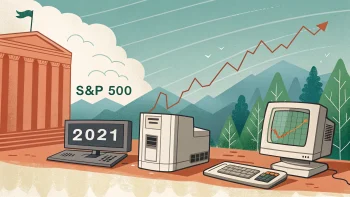The electric vehicle (EV) market faces significant headwinds as President Trump announced plans to halt funding for EV charging infrastructure and potentially eliminate EV subsidies. Despite its recent stock performance, this development has created uncertainty in the EV sector, particularly for Tesla.
Table of Contents
ToggleTesla’s Stock Performance and Market Challenges
Tesla’s stock experienced a significant surge, gaining over 100% since the “Trump trade” began in September. However, this rally now faces scrutiny due to several challenging factors affecting the company’s fundamental business model.
The company’s sales performance has shown concerning signs, with 2024 deliveries falling below 2023 levels. This decline in sales comes at a critical time when the EV market faces increased pressure from potential policy changes.
View this post on Instagram
Impact of Government Policy Changes
Two major policy shifts could affect Tesla’s business model:
- The proposed halt on funding for EV charging station infrastructure
- The potential elimination of the $7,500 federal tax credit for EV purchases
Historical data from other markets provides insight into the potential impact of such policy changes. For example, when Germany eliminated its EV subsidies, the market experienced a significant 28% decline in EV sales, highlighting the importance of government incentives in driving EV adoption.
Tesla’s Business Model Considerations
While Tesla presents itself as more than just an automotive company, several aspects of its business model warrant attention:
- The company’s robotics division remains in development
- The self-driving taxi service is still not operational
- Both initiatives depend heavily on revenue from automotive sales
The potential reduction in government support comes when Tesla needs to maintain strong automotive sales to fund its research and development initiatives in robotics and autonomous driving technology.
The combination of declining sales, potential loss of government incentives, and dependence on automotive revenue for future projects creates a complex situation for Tesla’s market position and stock valuation.
Frequently Asked Questions
Q: How might the elimination of EV subsidies affect Tesla’s sales?
Based on historical data from other markets, eliminating EV subsidies could significantly decrease sales. The German market example shows that removing financial incentives can substantially decline EV purchases, potentially affecting Tesla’s revenue stream.
Q: What role do government incentives play in EV adoption?
Government incentives, including tax credits and infrastructure support, have been instrumental in promoting EV adoption. These financial benefits help offset the higher initial cost of electric vehicles and make them more attractive to potential buyers.
Q: Can Tesla sustain its growth without government support?
Tesla’s ability to maintain growth without government support would depend on several factors, including reducing production costs, improving profit margins, and successfully developing new revenue streams through its robotics and autonomous driving initiatives.

















